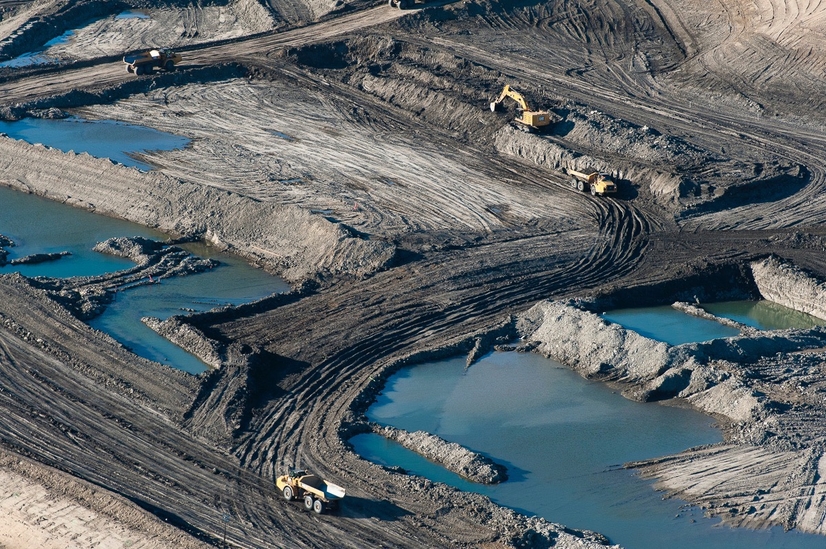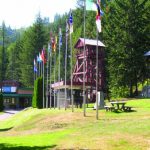Op/Ed: Site C work stoppage: a First nations view
Editor’s Note: This is a press release from the Union of BC Indian Chiefs.
The Treaty 8 First Nations taking the Site C project to court have just secured a major work stoppage in the lead-up to a court injunction application set to be heard this summer.
On January 15th, the West Moberly and Prophet River First Nations filed civil actions alleging that Site C infringes their Treaty rights and requesting that the court terminate the project at trial. That was followed by the filing of an interim injunction application on January 31st aimed at suspending construction until the trial judgement is received. After reviewing the filed materials, BC Hydro initially wrote to the First Nations on February 9th with intentions to continue all previously scheduled work. But after lawyers for the First Nations warned that continuing to work in “critical areas” identified by the First Nations would prompt an “interim, interim injunction”, BC Hydro reversed its position. On February 16th it sent logging contractors home that were in the process of cutting a stretch of old growth within three critical areas approximately 29 kilometers long by 80 meters wide (the Trappers Lake, Sucker Lake, and Peace Moberly Tract Critical Areas). The clearcutting and road-building were part of a 75-kilometer transmission line required for the project.
The work stoppage is expected to capture several other areas of the project. There are no known plans to attempt work in the coming months within any of the other nine “critical areas” identified by the First Nations. These critical areas overlap the proposed realignments of Highway 29, clearing of old growth on instream islands, and clearing of old growth along the banks of the Peace River. Although BC Hydro has asserted that the work suspension will cause “substantial” financial losses.
A hearing of the First Nation’s injunction has now been scheduled to take place over 10 days this summer, likely commencing July 23rd. These dates were scheduled by the court to permit enough time for preliminary matters to be addressed, while ensuring that the judge presiding over the injunction has sufficient time to make its decision before any suspended work within critical areas can resume.
“We feel very good about the state of play,” said West Moberly First Nations Chief Roland Willson. “BC Hydro wouldn’t send their contractors home and shut down work for the next six months unless their back was against the wall. And if they are making these types of concessions before we even step foot inside the courtroom, we think that bodes well for our injunction this summer,” said Chief Willson.
At the injunction hearing, the court will be asked to extend this work suspension to cover all project activities (not just work in critical areas), and to do so for a much lengthier period: until the Treaty infringement claim is determined at trial. This could be an additional 18 months or longer.
“Why would anyone continue building this project? The cost of the alternatives keeps dropping. Alberta’s RFP attracted record-setting prices from windfarms that can produce power at half the cost of Site C,” stated Chief Tsakoza. “Meanwhile, Site C’s budget keeps climbing. It was $6.6 billion when Gordon Campbell announced it, $8.3 when Christy Clark approved it, and $10.7 when John Horgan blessed it. Our expert’s current estimate is north of $12 billion. What will it be if our injunction forced Mr. Horgan to press the pause button for a couple of years?” Chief Tsakoza added.
There could be a dramatic political fallout if Premier Horgan allows two controversial megaprojects opposed by the progressive wing of his party to proceed. While his Government had, and still has, everything it needed to cancel Site C, it is unclear if it has the jurisdiction to derail Kinder Morgan’s Trans Mountain pipeline. Site C sticks out is a vulnerability in Premier Horgan’s standoff with Prime Minister Justin Trudeau and Alberta’s Premier Rachel Notley. BC’s Attorney General David Eby recently described Site C as a “terrible situation of a massive public infrastructure investment without any apparent customer for the electricity it will produce.” Earlier this month, the Government of Alberta cancelled negotiations with B.C. over the purchase of $500 million in electricity in what it promised would be the first in a series of escalating measures.
“There is still a window of opportunity open to the Premier, but it will be closing soon. There is no need for him to be waging war against Indigenous Peoples. He can uphold Treaty 8, implement UNDRIP, and save British Columbians billions of dollars. Just cancel the dam,” stated Chief Willson.
The Site C injunction application filed on January 31st includes over 4,000 pages of evidence from 12 subject-matter experts and 9 Indigenous affiants. The materials and a map of the identified “critical areas” are available online at www.sagelegal.ca at the “Site C” tab. The filed affidavits provide a rich evidentiary record on issues such as the following:
1. the Peace River Valley is, and has always been, central to the Dunne-za mode of life protected by Treaty 8 (Affidavit #1 of Chief Roland Willson, Affidavit #1 of Rachel Olson);
2. Prophet River and West Moberly stand united in opposition to the Site C project and the infringement of Treaty 8 (Affidavit #1 of Chief Lynette Tsakoza)
3. Construction of Site C is causing irreparable harm (Affidavit #1 of Chief Roland Willson, Affidavit #1 of Rachel Olson);
4. Successive BC governments tilted the scales during EA and BCUC reviews towards approval (Affidavit #1 of Harry Swain, Former Chair, Joint Review Panel for Site C);
5. BC Hydro’s project management blunders will drive costs above $12 billion (Affidavit #1 of Marc Eliesen, Former BC Hydro CEO);
6. Site C’s direct land disturbance footprint (~13,500 ha) is 40 times larger than that of the BCUC Alternatives (~300 ha) (Affidavit #1 of Dr. Petr Komers); and
7. Mercury contamination from the dams threatens human health and First Nations’ fishing rights (Affidavit #1 of David Schindler, Fisheries Ecologist).























